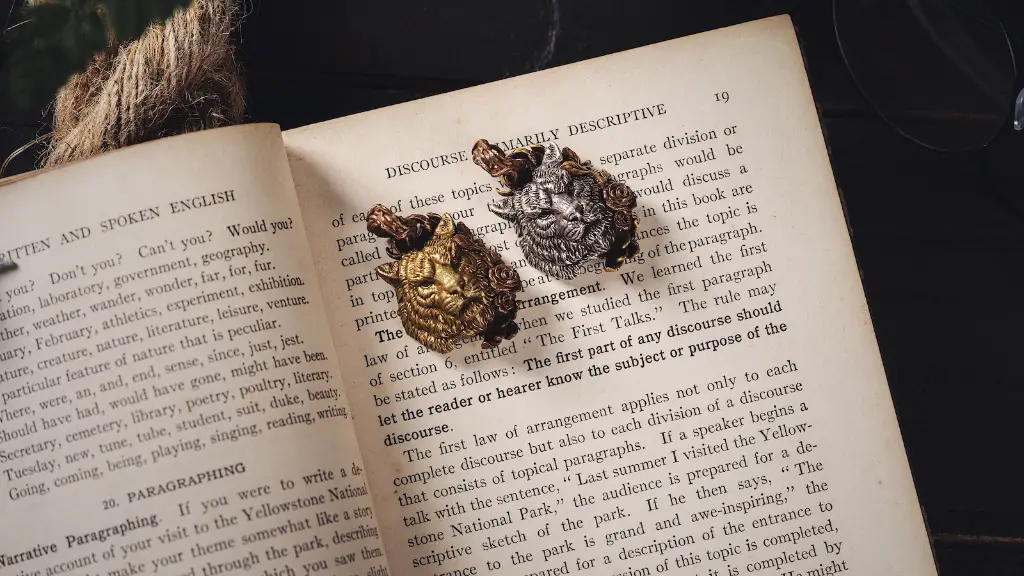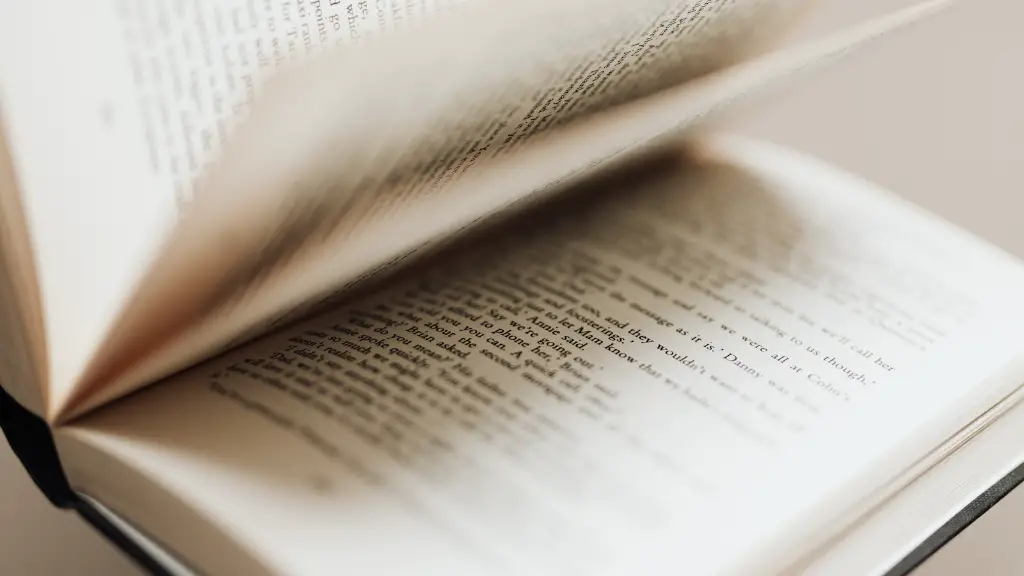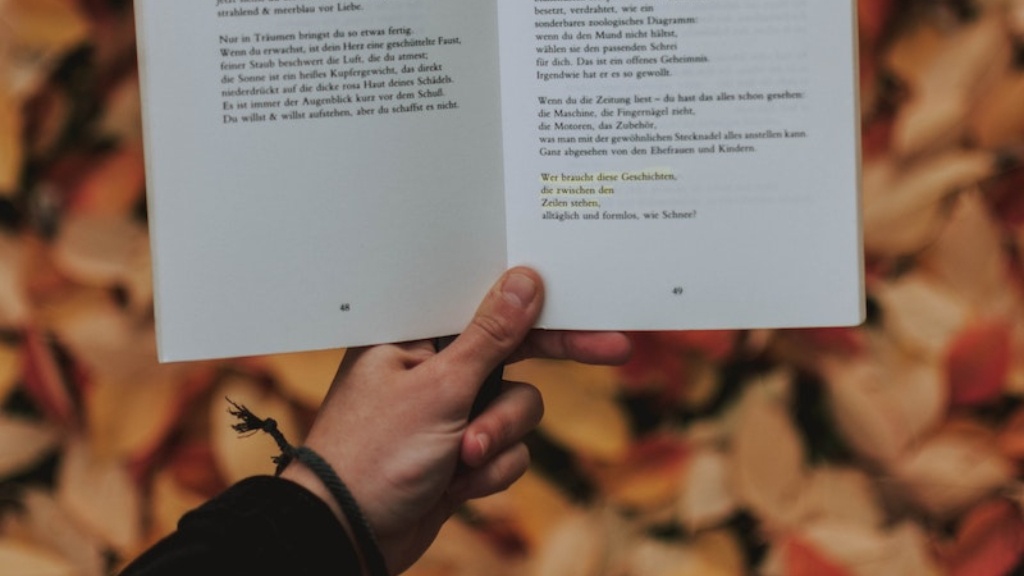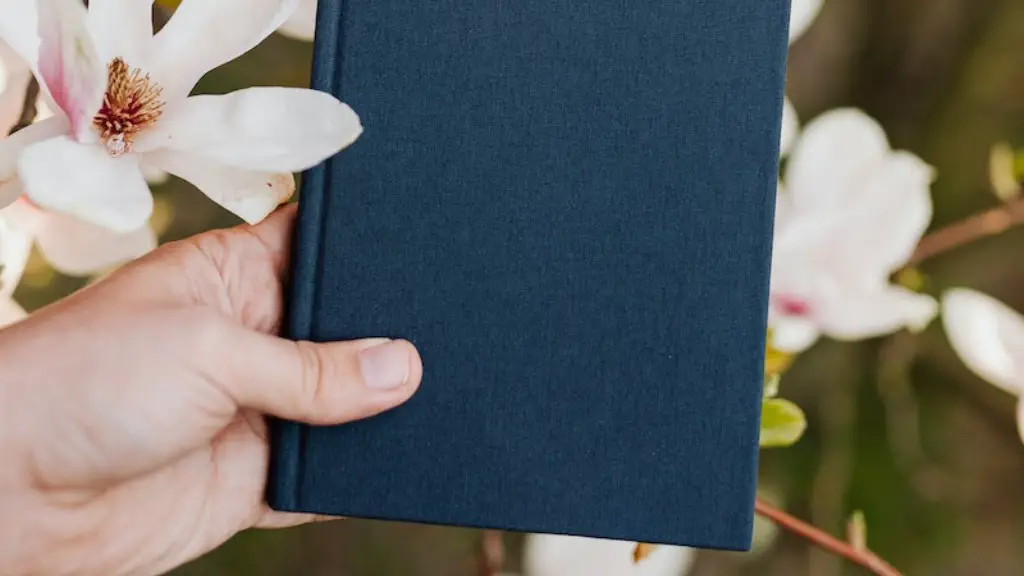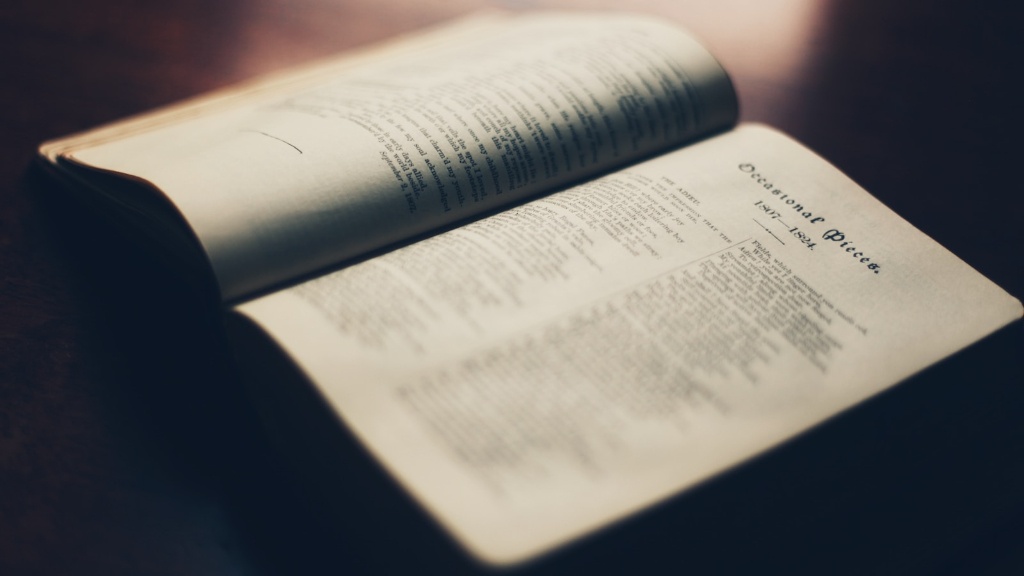The definition of poetry has been a subject of debate through the ages. Poetry has been seen as a language of emotion, and as a means of expression of one’s innermost thoughts and feelings. The common view of poetry has consistently been of something crafted in a way that enables the use of metaphor, simile and other figurative language. However, over time, the definition of poetry has evolved to encompass much more than the written form.
It can be argued that poetry is the most powerful form of communication available. It allows us to use our own private language, and to share with others the innermost thoughts and feelings that could not be communicated any other way. In their most fundamental form, poems are composed of lines and stanzas, as well as other poetic devices, such as metaphor or rhyme, which use language in a way that no other form of written communication can.
Poetry, as a literary art, has been around for centuries, and has been used to express all manner of feelings, thoughts, and emotions. There are few pieces of literature that possess the power and intensity of verse, acting as the perfect medium for expressing complex ideas and emotions. This is due to the unique structure of poetry and the power of language to evoke emotion and draw on lyricism and beauty.
In its most basic form, poetry is a form of writing which uses language to evoke emotion, create rhythm and express certain ideas in a concise and powerful way. Generally, a poem has a specific and recognizable form, often following metrical rules and adhering to certain conventions such as rhyme and meter. In addition, poems often contain figures of speech, such as metaphors and similes, which are designed to make the words more evocative.
At the same time, many modern poets have pushed the boundaries of the definition of poetry and have begun to break traditional rules of composition, creating works that are more freeform and experimental. Whatever the form, it is clear that poetry has a unique power and ability to touch the emotions of its readers in ways that other forms of literature can’t.
As well as its ability to move us and make us feel more connected to one another, poetry also has a unique and powerful impact on how we think and how we view the world. Poetic language can be timeless and universal, so it is possible to find yourself relating to a poem written hundreds of years ago just as if it was written today.
Poetry often uses words to challenge us. It can create questions and stir up emotions that would otherwise remain dormant. It can lead to deeper understanding of what we think and feel, often revealed through innuendoes and symbols in the poem. For these reasons, poetry is seen as a form of art and can be incredibly inspiring to its readers.
Poetry As A Creative Genre
As a literary form, poetry is often seen as a type of creative writing. It allows the writer to explore ideas and express emotions in ways that can’t be achieved through other forms of literature. It also often enables the writer to explore and express their own ideas in ways that are more evocative and resonant than traditional forms of literary expression
One thing that sets poetry apart from other forms of writing is that it is often less focused on narrative flow, steadying on a more fluid and poetic narrative. This is why poetry can be a great outlet for those who want to explore more creative forms of expression.
Modern poetry often embraces an experimental approach to language and meaning. Poets often seek to push the boundaries of language, exploring multiple meanings and creating fresh metaphors and similes.
As well as the use of figurative language, the structure of a poem can also be used to convey meaning. Poems often use alignment, line breaks and punctuation to create rhythm and create a unique poem. Poets can also use repetition and other tools to create a unique poem that resonates with the reader.
Poetry can also be used to narrate a story but without the same rules of narrative storytelling. Because of this, a poem can often express an idea in a quicker and more powerful way than any other form of literature.
Tools For Understanding Poetry
In order to fully appreciate a poem, the reader must draw on the tools of literary analysis. This includes close readings of the poem, looking for the poetic devices that have been used, such as metaphor, simile and alliteration. By paying attention to the structure of a poem, readers can better identify and appreciate the meaning behind the words.
In addition, readers must understand the cultural context of a poem. There are often references in a poem that can only be fully understood when one has an understanding of the culture and language in which it was written. By familiarizing oneself with the poetry of a given time and place, it is easier to understand the references and deeper meanings present in a poem.
Another important element of understanding a poem is to think about the author’s intentions. Poetry is not always written with a single purpose or meaning in mind. It can be interpreted in different ways, and it is often up to the reader to decide what they think the poem is really about.
Ultimately, poetry is a complex and multi-faceted form of communication. It has the power to move us and make us feel connected to one another, and it can also help us to understand the things that matter to us the most.
Pros and Cons of Poetry
Much like any form of literature, poetry has its advantages and disadvantages. The most significant advantage of poetry is its ability to evoke strong and powerful emotions. Through the use of poetic devices and imagery, a poem can be profoundly moving and resonant.
At the same time, poetry can be very challenging to read and understand. As mentioned, readers need to be able to identify and understand the devices used in a poem, and they also must draw on the tools of literary analysis. As such, poetry can be seen as quite a complex form of literature and one that curious readers should definitely explore.
In addition, poetry can be a great way for readers to explore their emotions and thoughts in a safe and creative way. Through the use of verbal and visual metaphors, readers can explore and express their innermost thoughts and feelings.
The main disadvantage of poetry is that it can be very subjective and open to interpretation. This means that readers may not always agree on what a poem means, or even what the author intended. This can limit the impact of the poem and undermine its message.
Poetry’s Reception In The Modern World
In the modern world, poetry has seen both an increased appreciation and a decline in popularity. On the one hand, modern technology has made it easier to access more poetry than ever before, leading to a higher level of appreciation and appreciation of the genre. Furthermore, platforms like Instagram and YouTube have allowed poets to share their work with a wider audience, leading to a greater level of recognition and respect for the genre.
At the same time, however, some people have lamented the fact that poetry has become less popular in comparison to other forms of literature. It has been argued that there is less focus on poetic expression in modern culture, leading to a lack of passion or appreciation for the genre. Furthermore, it has been suggested that the focus on conveying a narrative or story, rather than focusing on the craft of writing a poem, has led to a drop in the quality of modern poetry.
Interestingly, however, there have also been reports of a resurgence in interest in poetry. New poets have emerged on the scene, bringing fresh energy to the genre, and more and more people have begun to explore the genre. It is clear that, despite its challenges, poetry still has the power to inspire, evoke emotion and resonate with readers.
The Use Of Poetry In Education
In addition to its artistic value, poetry can also be used as a tool for education. By understanding the structure of a poem and its different poetic devices, readers can learn to better appreciate language and its effects. This can have a long-lasting impact, as the skills gained can be applied in many other aspects of life.
In addition, poetry can be used to teach a variety of core academic concepts. Through the use of metaphor and imagery, students can better understand and remember concepts such as math, history, biology, and literature. Furthermore, poetry can also be used to address more complex philosophical issues, such as ethics, morality and justice. This can be an invaluable way to stimulate critical thinking and to develop valuable problem-solving skills.
Finally, the use of poetry in education can also help to develop important soft skills, such as communication, empathy, and self-expression. By encouraging students to explore and express their emotions, alternative viewpoints and ideas through poetry, students can develop a deeper understanding of themselves and the world around them.
Conclusion
In conclusion, the definition of poetry has evolved over time to encompass much more than its written form. Its power to move us and make us feel connected to one another has made it one of the most powerful forms of communication. From its ability to evoke emotions to its use as a teaching tool, it is clear that poetry still holds a significant place in modern culture.
